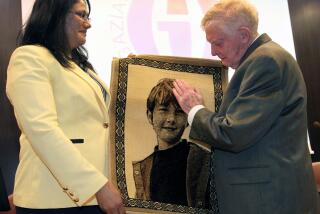Casey’s Quick Transplant Renews Ethics Debate : Medicine: Pennsylvania governor got heart and liver within 24 hours of getting on list, under guidelines giving priority to those who need multiple organs.
- Share via
PITTSBURGH — The ethical guidelines that help decide who gets each donor heart, liver, lung, kidney or pancreas are not set in concrete, but in shifting sand.
A decade after surgeons began regularly transplanting kidneys, physicians, administrators and ethicists continue to debate how to allocate scarce donor organs.
Should the sicker patient get an organ before a healthier person with a better chance to survive? Should a patient who rejects two livers receive a third? Should animal organs be used? Should transplant candidates in one region be allowed to shop around for another region with a shorter waiting list?
Should patients such as Pennsylvania Gov. Robert P. Casey, who recently needed more than one organ, go to the front of the line?
These are tough questions that people in the field have to answer every day. And just when the picture seems clear, transplant science changes again.
Two years ago, doctors using new technology examined the heart of Sarah Kelton of Pittsburgh while she was a fetus only 17 weeks old. They found that she was missing half her heart and concluded that she probably would die a few days after birth.
Dr. John Armitage, a heart surgeon at the University of Pittsburgh Medical Center, knew chances were slim of finding Sarah a newborn-size heart within that narrow window. So at 30 weeks, the fetus went on the waiting list.
Six weeks later, Sarah was delivered surgically and immediately received a waiting donor heart. She died of a virus at 3 months.
The case prompted the United Network of Organ Sharing in Richmond, Va., the national clearinghouse for transplants, to set new guidelines on fetuses. Before their names can be placed on a list, they must be 36 weeks old, the age at which they can survive outside the womb.
A patient’s address also can affect chances of receiving a transplant because organ-procurement agencies try to match a donor organ with a patient in their own region before offering it elsewhere.
Nancy and Michael Jakus of Brookfield, Wis., tried to beat that system to find a heart for their 8-year-old son, Matthew, who was born with multiple heart defects.
Matthew was on the list in Minneapolis, but the Jakuses registered his name in other regions to increase his chances of winning the heart lottery.
Because each transplant center had to examine Matthew, the parents flew him first to Pittsburgh, then to the University of Michigan in Ann Arbor. He was so weak he rode in a child-size stroller.
One doctor in Chicago told the family not to bring Matthew because Illinois hearts stay in Illinois.
Matthew caught the flu and went into the University of Minnesota Hospital and Clinic on Feb. 15. He died the next day.
Matthew mother’s conclusion? “There has to be national sharing.”
Further debate centers on patients who need more than one organ. The Center for Organ Recovery & Education in suburban Pittsburgh gives them top priority.
That was how Casey, who needed both a heart and liver, went to the top of the list and received the organs he needed within 24 hours.
Six heart patients and two liver patients had been on the lists longer than Casey, who was judged at least as ill as all eight.
The decision makers were so concerned about public opinion that they considered using the heart and liver in two other patients.
Dr. John J. Fung, chief of transplantation at Pitt, and his colleagues debated for 20 minutes, decided to follow the rules, selected Casey and braced for the storm.
“I wouldn’t have been able to live with myself if he had died while I waited for another donor,” Fung said.
The public perception was that wealth and privilege helped Casey.
“To be perfectly honest, when I first heard he got a multiple transplant, I was disturbed,” said Bob Riback, 60, of Pittsburgh, who has waited six months for a heart.
Eventually, Riback decided that the decision was fair. Watchdog agencies agree that the Pittsburgh center did follow its guidelines.
Brian Broznick, the center’s executive director, said that if multiple-organ candidates didn’t get preferential treatment, they would almost never receive a transplant.
The governor’s case prompted the federal Division on Organ Transplantation to ask United Network of Organ Sharing to establish guidelines on multiple-organ transplants.
Debate still surrounds one practice followed by all procurement centers--giving priority to the sickest patient.
Some believe it would be more ethical, given the scarcity of organs, to transplant the patient with a better chance of surviving.
“The people who are sicker may have a poorer outcome,” said Dr. James F. Burdick, an ethics professor at Johns Hopkins University Medical School in Baltimore.
If Riback, for example, were much sicker, he would get a heart transplant faster. But if he becomes too sick to withstand surgery, he can lose out entirely.
He’s already had a heart attack, triple-bypass surgery, a pacemaker implant and a defibrillator, which six times has restarted his heart with a jolt of electricity.
Although he waits while donor hearts are being sewn into other people’s chests, he has few qualms about policy. He just wants his viewpoint weighed in with those of the academics.
“They’re not at risk, but they’re debating the issues,” Riback said. “People should know what it’s like to be waiting.”






